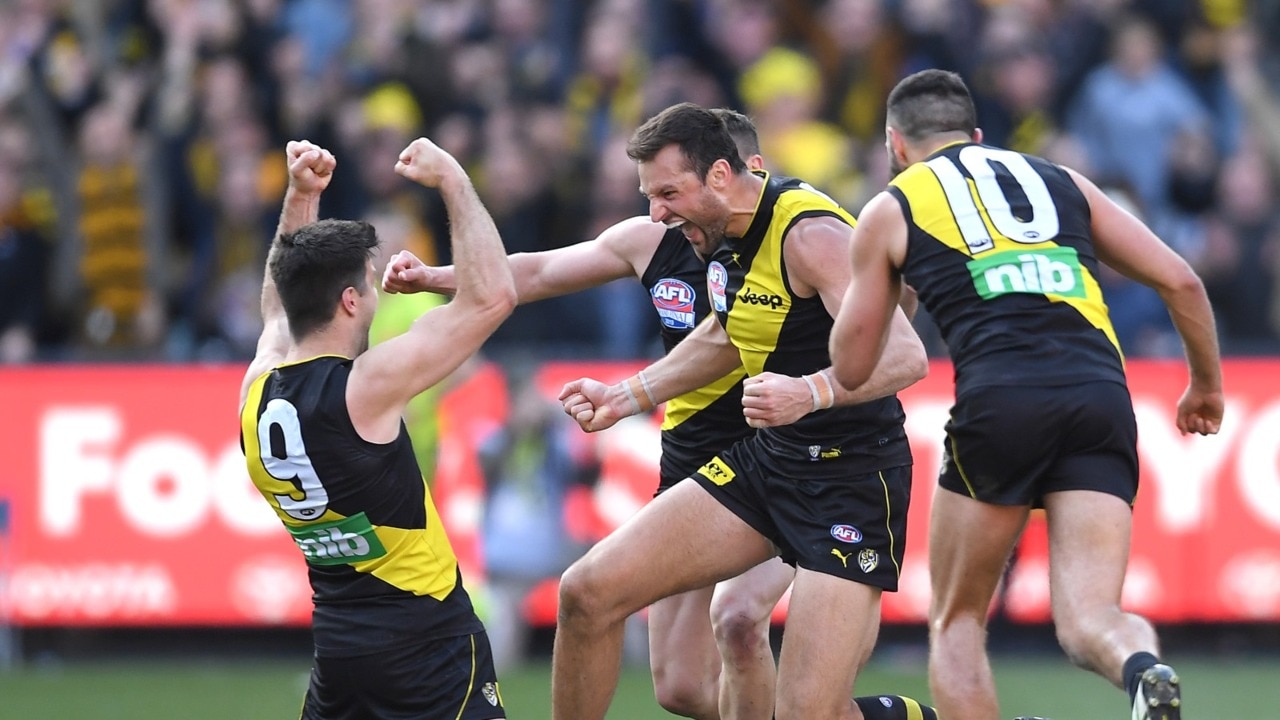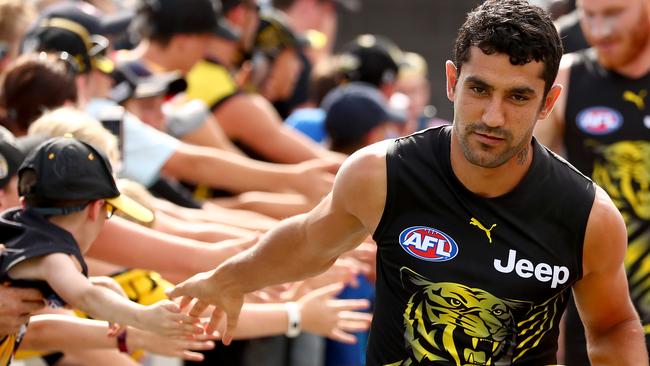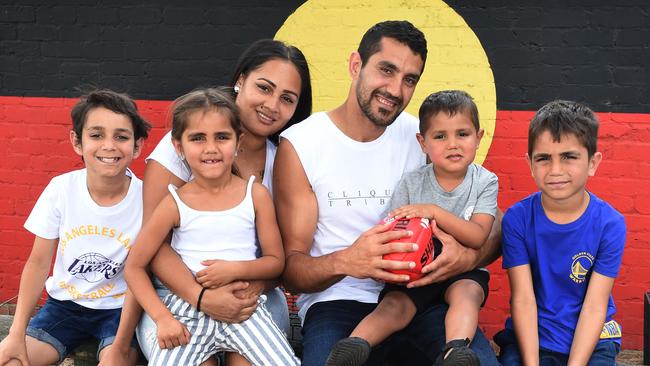Richmond hero Marlion Pickett may work in juvenile justice system
Richmond premiership hero Marlion Pickett has been hit hard by the AFL’s salary squeeze. And Richmond are helping him find further employment, mentoring youth in the juvenile justice system.

AFL News
Don't miss out on the headlines from AFL News. Followed categories will be added to My News.
RICHMOND is trying to secure Marlion Pickett work mentoring youth in the juvenile justice system.
The Tigers are working with the AFL on an arrangement that could see Grand Final hero Pickett employed at the Korin Gamadji Institute - an education and training facility that supports leadership and employment for Aboriginal and Torres Strait Islander people - which is housed at Punt Road.
The emerging star has been forced to apply for financial assistance from an AFL players’ hardship fund in the wake of the coronavirus crisis.
Pickett, who is on a rookie contract at Richmond, and all AFL players have had their pay cut by 50 per cent amid the economic difficulties facing the game.
Relive classic AFL matches from the 60s to today on KAYO SPORTS. New to Kayo? Get your 14-day free trial & start streaming instantly

But the club is currently in talks with the league about employing Pickett not only on-field, but off it, too.
“Because we’ve got our Korin Gamadji Institute – and that’s been in place for 10 years and with a range of programs and leadership training and job placements … we’ve got thousands of kids that go through there,” Richmond chief executive Brendon Gale told the Herald Sun.
“There’s organized certificate training, and some of our players get involved in mentoring.
“We’re doing some work in juvenile justice, and we just thought there is a real meaningful opportunity to Marlion to deliver some programming.
“Ordinarily, they’d be consultants or other educational people, but his story is just remarkable, and he’s sitting right there.
“It’s something that we just think he’s got a really important to play when his career is over, and I think this will equip him well. That’s with the AFL, and you need to go through all the proper processes.”
Gale said it “wouldn’t even be part-time”.
All such arrangements must be ticked off by the league, with earnings having to be independent of the club to be counted outside of the salary cap, with the club hopeful that will happen in coming weeks.

Pickett, 28, spent time in prison in Western Australia between 2010 and 2013 before turning his life around, his stunning rise from South Fremantle culminating in premiership glory last September where the forward made his debut in the Grand Final.
He and his partner Jess now live in Thornbury with their four children, having moved from Western Australia, with the effects of the crisis – which Gale said had been “testing everyone” – proving a significant challenge.
Senior club adviser Neil Balme said this morning that the AFL “should be giving him a million dollars for his story, in reality”.
AFL players can have a job arranged by their clubs outside of their playing contract so long as the wage is market value.
All third party arrangements must be approved by the AFL’s investigations manager Ken Wood.
The AFL Players’ Association would not disclose how many other players had reached out for financial support when contacted by the Herald Sun but confirmed Pickett was not an isolated case.
The union’s $500,000 hardship fund was included as part of the pay deal done with the AFL in March which saw players take a 50 per cent pay cut this year.
Players can apply for access to the hardship fund either themselves or through their managers, with an internal committee anonymously assessing all cases.
A $250,000 grant to support ongoing mental health and wellbeing services was also included as part of this year’s pay deal.
MORE AFL NEWS:
Ask Robbo: Herald Sun chief football writer Mark Robinson answers your football questions
Originally published as Richmond hero Marlion Pickett may work in juvenile justice system
